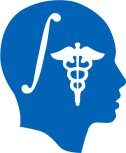 NA-MIC Project Weeks
NA-MIC Project Weeks
Back to Projects List
3D Teeth Landmark Detection
Key Investigators
- Juan Prieto (University of North Carolina, USA)
- Lucie Dole (University of North Carolina, USA)
- Florian Davaux (University of North Carolina, USA)
- Jeanne Claret (University of Michigan, USA)
- Gaëlle Leroux (University of Michigan, USA)
- Lucia Cevidanes (University of Michigan, USA)
Project Description
Background:
Accurate landmark identification is crucial in various dental procedures. Manual identification is time-consuming and prone to errors. An AI-driven model will automate this process, offering a reliable, scalable solution.
Goals:
- Develop an Accurate Model: Use advanced machine learning algorithms for high-precision landmark identification.
- Training and Validation: Train using the 3DTeethLand-MICCAI2024 dataset and validate with diverse samples.
- Integration: Seamlessly integrate with other dental software.
- User Interface: Create an intuitive interface in 3D Slicer for this new extension
Methodology:
Data Collection: Use the 3DTeethLand-MICCAI2024 dataset, containing annotated 3D dental models. Model Development: Employ deep learning techniques, such as convolutional neural networks (CNNs), to develop the model.
Validation and Testing:
Perform extensive testing with validation datasets to ensure robustness and accuracy. Software Integration: Collaborate with dental software developers for smooth integration. User Training: Provide training and support for effective model utilization.
Objective
Develop and validate an advanced AI model to accurately identify anatomical landmarks in dental models, enhancing precision in dental treatments, diagnostics, and educational applications.
Approach and Plan
Day 1
Data Download & Preprocessing and Exploration
Download the 3DTeethLand-MICCAI2024 dataset and explore the data structure. Visualize landmarks, surface models and setup the data for training.
Day 2: Model Development, Training, and Testing
ShapeAXI models for shape analysis
Use point cloud (PC) and multi-view approaches for shape analysis.
Initial Model Training:
Begin training the model using the preprocessed dataset.
Day 3: Model Validation and Fine-Tuning
Model Validation and model refinement
- Hyperparameter Tuning
- Architecture changes
Day 4: Integration, UI Development
UI Design and Implementation:
Create a basic user interface in 3D Slicer. Documentation and Presentation Preparation.
Key Deliverables by End of Week:
- Preprocessed and augmented dataset.
- CNN model implemented and trained in PyTorch.
- Validated and tested model with performance metrics.
- APIs/plugins for integration with dental software.
- Functional UI in 3D Slicer.
- Project documentation and presentation materials.
Progress and Next Steps
- Download the data.
Illustrations
Background and References
Baquero, Baptiste, Maxime Gillot, Lucia Cevidanes, Najla Al Turkestani, Marcela Gurgel, Mathieu Leclercq, Jonas Bianchi et al. “Automatic Landmark Identification on IntraOralScans.” In Workshop on Clinical Image-Based Procedures, pp. 32-42. Cham: Springer Nature Switzerland, 2022.
Results of the approach